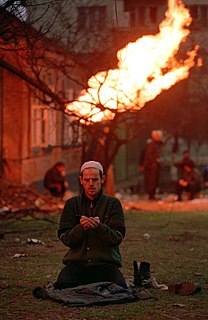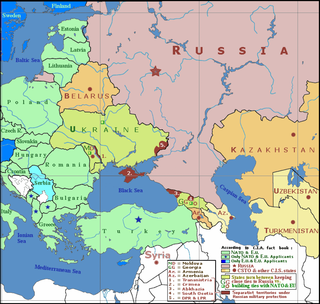 W
WConflict analysis or conflict assessment is an initial stage of conflict resolution in which parties seek to gain a deeper understanding of the dynamics in their relationship.
 W
WThe conflict triangle or ABC triangle is a model exploring the impact and causes of conflict.
 W
WDe-escalation is a behavior that is intended to prevent escalation of conflicts. It may also refer to approaches in conflict resolution. People may become committed to behaviors that tend to escalate conflict, so specific measures must be taken to avoid such escalation.
 W
WDivide and rule, or divide and conquer, in politics and sociology is gaining and maintaining power by breaking up larger concentrations of power into pieces that individually have less power than the one implementing the strategy.
 W
WAn ethnic conflict is a conflict between two or more contending ethnic groups. While the source of the conflict may be political, social, economic or religious, the individuals in conflict must expressly fight for their ethnic group's position within society. This final criterion differentiates ethnic conflict from other forms of struggle.
 W
WIn international relations, a frozen conflict is a situation in which active armed conflict has been brought to an end, but no peace treaty or other political framework resolves the conflict to the satisfaction of the combatants. Therefore, legally the conflict can start again at any moment, creating an environment of insecurity and instability.
 W
WThe Heidelberg Institute for International Conflict Research (HIIK) is an independent and interdisciplinary registered association located at the Department of Political Science at the University of Heidelberg. Since 1991, the HIIK has been committed to the distribution of knowledge about the emergence, course and settlement of interstate and intrastate political conflicts. The Conflict Barometer is published annually and contains the current research results.
 W
WHoʻoponopono is a Hawaiian practice of reconciliation and forgiveness. The Hawaiian word translates into English simply as correction, with the synonyms manage or supervise, and the antonym careless. Similar forgiveness practices are performed on islands throughout the South Pacific, including Hawaii, Samoa, Tahiti and New Zealand. Traditional Hoʻoponopono is practiced by Indigenous Hawaiian healers, often within the extended family by a family member. There is also a New Age practice that goes by the same name.
 W
WSociology of Revolution is a book by Russian American sociologist Pitirim Sorokin. Sociology of revolution as branch of sociology was developed by Thomas Hobbes in Leviathan. to a certain extent earlier than Sorokin. Hobbes lived and created in the period of English Revolution. In the opinion by Hobbes, "the war of all against all" begins in the period of revolution and of Civil War, when all men threaten by each man, when each man has the right to all things by right of strong man, when "Man Is Wolf to Man" Sorokin had generalized the data about the new revolutions, unknowns for Hobbes – French Revolution, Russian Revolution (1917), etc.